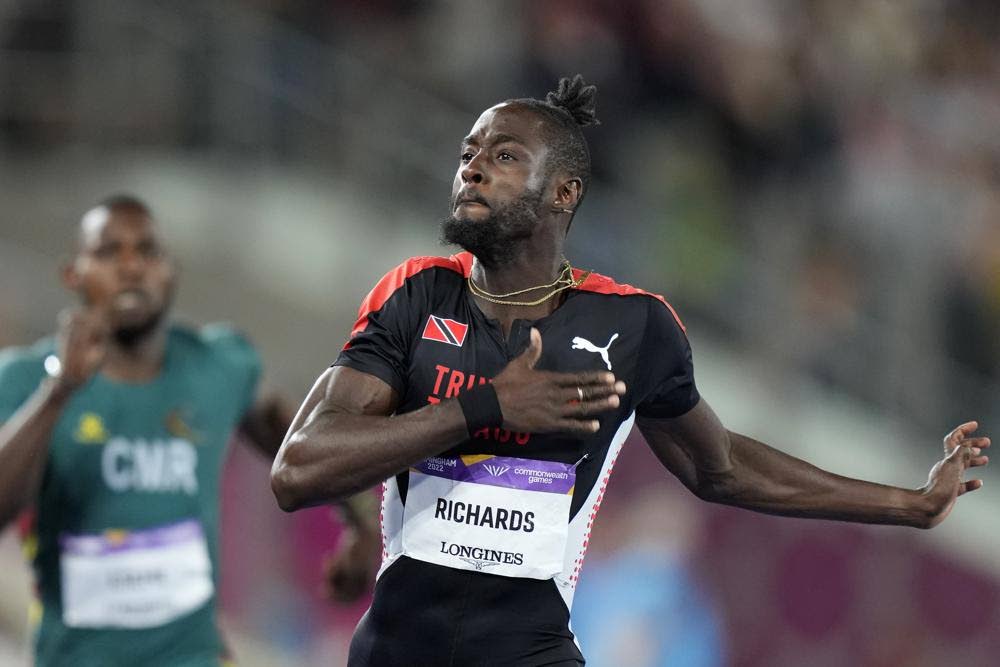Shame and Performance

INDULGE ME for a moment and picture this scenario if you will…It’s the men’s 4x100-metre track final at the Olympics, with a stiff field of competition the stakes are high.
The start gun fires off and the starting athletes pelt off the blocks. With most of the starting runners neck and neck, it’s going to be the time taken during the baton exchanges that will determine the winners of this race.
The red team are leading with a high probability of winning gold if they sustain their momentum. On the final leg of the race runner #3 attempts to transfer the baton to runner #4. Somewhere between #3 letting go and #4 holding on the baton falls to the floor and in an instant the hopes of an Olympic medal for the red team are swiped. If you have as vivid an imagination as I do you would certainly have felt the disappointment for the athletes in that scenario.
Can you possibly identify some of the emotions you believe runner #3 and #4 in particular might be feeling? If you said anything along the lines of disappointment, shame, guilt, responsibility for the loss you would be right, among others.
Interestingly enough this is one of many examples that highlights the breeding ground for experiences of shame and guilt that can occur within sporting settings, yet it is an incredibly under-researched realm of sport psychology. But why is understanding athlete shame important and what relevance does it have to athletic performance?
In short, we as stakeholders in sport continue to strive for a holistic understanding of athletic performance and what makes great athletes despite adversity so expanding the research and diversifying the conversation amongst coaches, technical staff, administrators and even parents can only lend to further advancing our efforts.
So let’s look a little closer at defining shame…According to the APA dictionary of psychological terms shame is defined as, “highly unpleasant self-conscious emotion arising from the sense of there being something dishonorable, immodest, or indecorous in one’s own conduct or circumstances. Psychological research consistently reports a relationship between proneness to shame and a host of psychological symptoms, including depression, anxiety, eating disorders, subclinical sociopathy, and low self-esteem,” (2022).
Looking more specifically at athletes the experience of shame or shame-proneness can occur when a performance is appraised (by themselves or others) as below the expected standard i.e. win or lose, not making a personal best, not placing within a particular ranking not qualifying for a major event, etc. Additionally, shame-proneness can also occur when there has been a behavioural transgression that is perceived as inappropriate, morally wrong, or below internally (or externally) prescribed standards (Rice, Olive, Treeby and Saw, 2021).
Examples of such can be anything from anti-doping violations to letting their teammates down to dropping the baton. The latter contributors to shame-proneness that are behaviour-related can be incredibly subjective and vary from athlete to athlete. The standard one athlete may hold themselves accountable to may be entirely different for another athlete.

So what is the result of shame and shame-proneness? How does it affect an athlete’s performance? According to Rice et al. (2021) it can lend to athletes being less likely to put effort into similar subsequent tasks, be less inclined to train harder through increased practice effort, fail to remain engaged in similar achievement related tasks (e.g. a competitive match), and fail to set task-related goals. As a direct result of this disengagement and a lack of goal-striving behaviour, there may also be a reduction in performance. In short, the athlete becomes avoidant and disengaged resulting in decreased performance.
So, how do we move through shame to ensure sustained desire to perform? Like anything else psychology-related there is no simple, direct, or quick fix answer but some of the things we can do to begin to help include:
1) Developing our self-awareness, knowing when we are feeling shame, what are our shame triggers and how our body responds to shame. It’s important to attempt this in a non-judgmental way and be mindful of the self-talk that we are engaging in while experiencing shame.
2) Differentiate between shame and guilt – Is it our actions or our values that we are scrutinising? knowing that guilt is related to our actions, but shame is related to our inherent morals and values is a key step to addressing how we go about coping with what we’re feeling and moving through it.
3) Find a safe and non-judgmental space to talk about your shame. Speaking about your shame to keeps it from flying under the radar and stops it from growing and manifesting further (Graham & Graham, 2015). When we allow ourselves to be vulnerable and speak about our shame it lessens the burden so to speak.
Feel free to submit any questions to alexandriaolton@outlook.com.


Comments
"Shame and Performance"